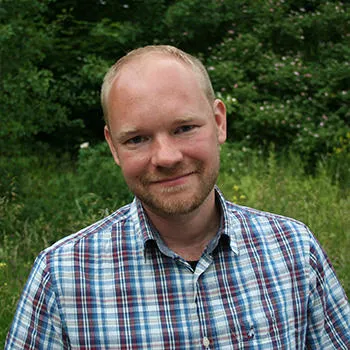
What first attracted you to the field of Engineering?
I have always wanted to leave a positive mark on the world. Early on, I identified energy as the enabler of modern society and of a lifestyle that would come with a relaxed and joyful future. Therefore, I choose to train to become an engineering physicist specialising in fusion energy. The potential realisation of clean energy in abundance would make it much easier to solve many of the great challenges of our world, such as climate change, recycling of resources, production of food and water, as well as fast and clean transportation.
In addition, I have always loved science fiction, especially those stories that unfold with the backdrop of a grand future (preferably one that allows ordinary people to travel in space). Engineering may hold the ability to creating the means for such a future, as well as robbing our species from it. Since childhood, I have always wanted to be a missionary for the former.
What do you think is the biggest misconception people have about Engineering?
One of the biggest misconceptions among people who are not engineers or have a close relationship with engineering, is that they often think that engineering is not a social science. But actually, it is rather on the contrary: engineering is mostly about people.
We live in an age dominated by technology, which defines most things we do from the moment we wake up in the morning until we fall asleep at night. Even while we sleep, we are generally on top of a comfortable construction, covered by microfibres, and trusting a digitally governed thermostat to keep the room in a thermally suitable state.
The purpose of technology is to make life easier, more joyful, and generally better. Engineering, is the craft of maintaining and developing technology – in all its forms – and thus its primary objective is to improve peoples' lives. It is intrinsically a very social profession, and interactions with other people is probably what takes up the most time on an ordinary work day for most engineers.
Social professionalism is at the core of the engineering profession and makes up a large fraction of engineering education. This is also one of the many features of this profession that makes it so appealing.
What's the biggest mystery in science you'd love to solve or see solved?
How we humans would be able to live the lives we want to live, in personal freedom and joyfulness – without compromising with the needs of future generations or with nature. I believe that engineering has a key role to play in a more sustainable world, and even though technology alone cannot create this world, without it we simply have no chance.
Core to sustainability though, is not only the solutions, strategies, and policies that may contribute to enabling it, but more profoundly the competences that will be utilised to create them. I would feel totally satisfied with my deeds on this planet if I had the chance to help to professionals across disciplines (including engineers) acquiring key competencies for sustainability. This would ultimately lead to a more enjoyable and livable world for all.
What advice would you give to someone considering studying Engineering?
Engineering is such a diverse field, and there is something for most people there. It is not only diverse across its array of disciplines but also in tasks, responsibilities, possibilities and practicalities.
You can become an engineer because you want to develop something (whether that be electric cars, medicines, computer games or garments) or because you want to build a business. Perhaps you love to see others grow and believe you would be suitable for a leadership position or as an educator. As an engineer, you would have the perfect platform for such a career. Or perhaps you are an author or a film maker in the making? An engineering degree would be a great way to start that career too.
The unique selling proposition for engineering is that it sits at the crossroads between natural sciences, business and society – and this is also why it is so difficult to define a typical engineering job. This fact, unfortunately, makes it tempting to fall into stereotypes, such as the image of the engineer as the isolated tech-mind. While this stereotype exists as a viable career option for those who prefer it, it truly represents only a minority of the opportunities available.
So, to summarise: if you are interested in a career where you will be able to leverage technology in any of its diverse forms to make life better and more enjoyable for people – then engineering might be for you!
What do you do in your spare time?
I am an outdoor person, and I love sports like sailing, kayaking and trekking. Close to Stockholm, Sweden, where I grew up, there is an archipelago of 30,000 islands – most of them uninhabited. In summer times, when the sun barely sets, it is lovely to go out there with your own boat and finding a deserted island where you can be truly close to nature and to those you bring with you.